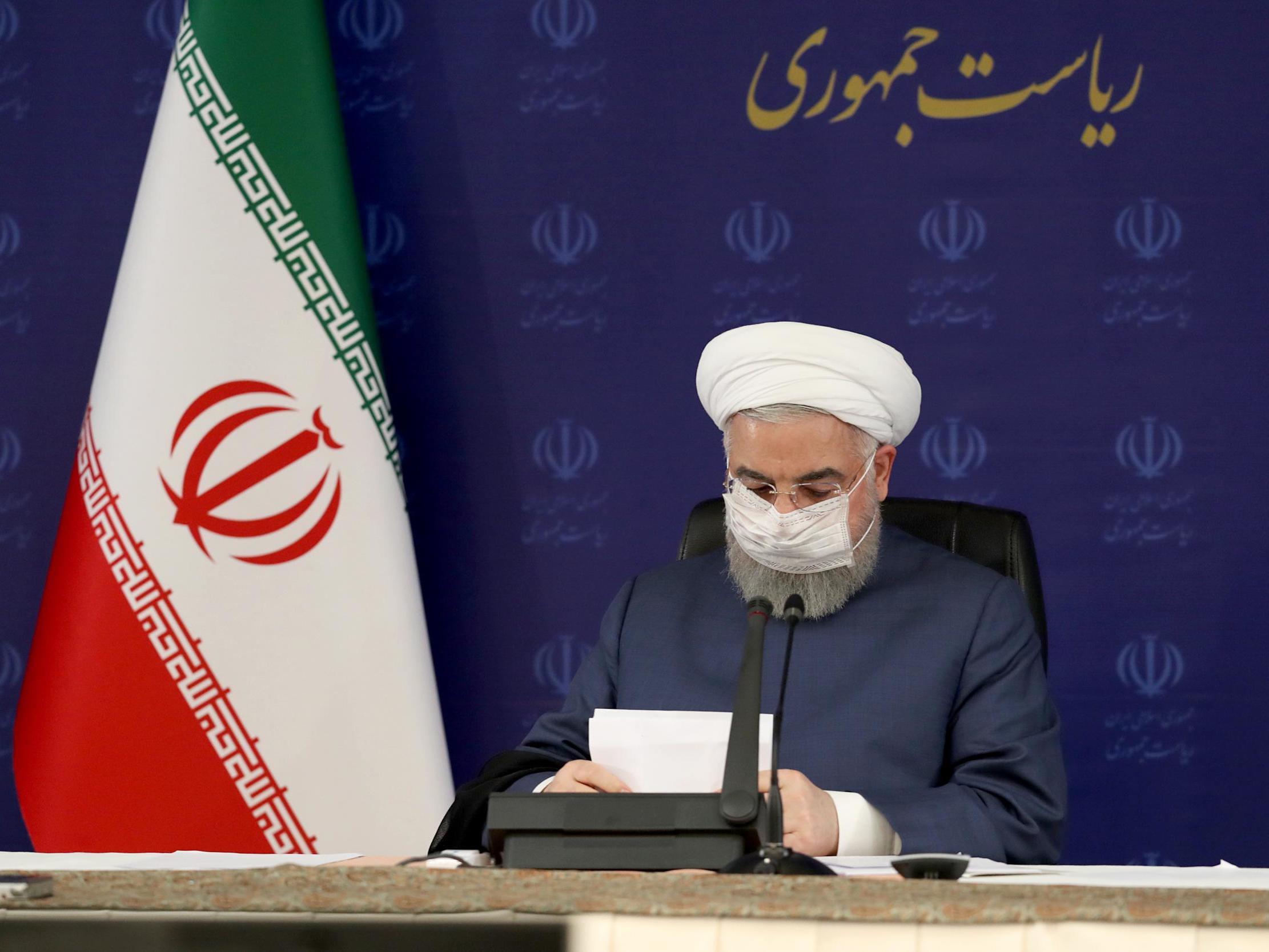Coronavirus: Data leak reveals true death toll in Iran three times official figures, says report
Investigation accuses health ministry of suppressing extent of pandemic after pressure from security services

Your support helps us to tell the story
From reproductive rights to climate change to Big Tech, The Independent is on the ground when the story is developing. Whether it's investigating the financials of Elon Musk's pro-Trump PAC or producing our latest documentary, 'The A Word', which shines a light on the American women fighting for reproductive rights, we know how important it is to parse out the facts from the messaging.
At such a critical moment in US history, we need reporters on the ground. Your donation allows us to keep sending journalists to speak to both sides of the story.
The Independent is trusted by Americans across the entire political spectrum. And unlike many other quality news outlets, we choose not to lock Americans out of our reporting and analysis with paywalls. We believe quality journalism should be available to everyone, paid for by those who can afford it.
Your support makes all the difference.Iran’s actual coronavirus death toll is three times the official government numbers, an investigation concluded over the weekend.
The Middle Eastern nation has been accused of deliberately suppressing the extent of its Covid-19 outbreak after an anonymous source leaked data which showed vastly more people had both caught and died from the virus.
Iran’s health ministry figures claim 279,000 people have been infected, of which 14,000 have died.
But the BBC’s Persian service has been given details of daily admissions to hospitals, including ages, gender and symptoms, which found at least 451,000 people have caught coronavirus in Iran and almost 42,000 have died.
Iranian health officials on Sunday rejected the BBC's report, which was broadcast on Saturday.
"Despite all the pressures that the pandemic has put on the country's medical staff, the outbreak is not large enough to cause such deaths figures," Ali Akbar Haqdoust, deputy health minister, told state radio on Sunday.
Health ministry spokeswoman Sima Sadat-Lari said on Saturday that Iran follows WHO guidelines, while hard-line news media in Iran accused BBC of fabricating evidence.
The very first case of coronavirus in Iran was on 22 January, almost a month before the government acknowledged the virus was present in the country.
Throughout the pandemic some in Iran have questioned the accuracy of official statistics and some local authorities have spoken out over discrepancies between regional and national levels.
The data given to the BBC shows the state has been deliberately reported lower daily numbers, despite knowing the true extent of the crisis.
This was particularly the case in the early days of the pandemic in March, when at one point the real number of deaths was five times higher than what the government was claiming.

After a lockdown was imposed later that month, both cases and deaths began to decline, but since June when some measures were relaxed they have been steadily climbing.
BBC Persian’s anonymous source said they leaked the statistics to “shed light on truth” and end “political games” over the epidemic.
The broadcaster has checked the details of some of the people on the lists which do correspond with patients with Covid-19 known to the BBC.
Doctors familiar with the situation inside the health ministry have told the BBC Iran’s security services pressured the department not to acknowledge the true state of the pandemic, particularly in the early days.
It took the persistence of two doctor brothers in the city of Qom, south of Tehran, to force the authorities to admit coronavirus had arrived in Iran in February.
After their brother died they demanded he be tested for Covid-19. When a positive result came back, they posted a video explaining the situation on social media.
Even after the health ministry admitted the doctors were right about the virus's presence in the country, Iranian state TV ran a report attacking the pair and accusing them of fabricating their evidence.
Join our commenting forum
Join thought-provoking conversations, follow other Independent readers and see their replies
Comments